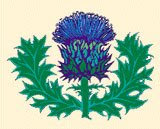Originally published in Harper's New Monthly Magazine
March 1885, pages 601-612.
Author: Frederick Daniel
(continued from Part 3)
Washington's paternal grandfather settled in Virginia in 1657, and his maternal grandfather emigrated in the same year to the same neighborhood. Augustin, the father of George, first married Miss Jane Butler, who died after giving birth to two sons, Lawrence and Augustin. "Fully determined still," says Weems, "that 'it is not good for man to be alone,' he renewed for the second time the chaste delights of matrimonial life. His consort was Miss Mary Ball, a young lady of fortune, and descended from one of the best families in Virginia. From his intermarriage with this charming girl, it would appear that our hero's father must have possessed either a very pleasing person or highly polished manners, or perhaps both; for, from what I can learn, he was at that time at least forty years old, while she, on the other hand, was universally toasted as the belle of the Northern Neck, and in the full bloom and freshness of love-inspiring sixteen. Those overdelicate folk who are ready to faint at the thought of a second marriage might do well to remember that the greatest man who ever lived was the son of this second marriage."
Writing only ten years after Washington's death, or in 1809, Parson Weems thus refers to the famous homestead opposite Fredericksburg: "Little George had scarcely attained his fifth year when his father left Pope's Creek, Westmoreland, and came up to a plantation which he had in Stafford, opposite to Fredericksburg. The house in which he lived is still to be seen. It lifts its low and modest front of faded red over the turbid waters of the Rappahannock, whither to this day numbers of people repair, and, with emotions unutterable, looking at the weather-beaten mansion, exclaim: 'Here's the house where the great Washington was born.' But it is all a mistake. The first place of education in which George was ever sent was a little 'old-field school' kept by one of his father's tenants on the Stafford farm, an old man named Hobby, who acted in the double character of sexton and school-master. Hobby lived to see his pupil in all his glory. In his cups – for though a sexton he would sometimes drink, particularly on the General's birthdays – he used to boast that 'twas he who between his knees had laid the foundation of George Washington's greatness."
It was on the Stafford farm that Weems locates the scene of the accident to that cherry-tree, cited "as a case in point" – i.e., George's love of truth – "too valuable to be lost, too true to be doubted, and communicated to me by the same excellent lady to whom I was indebted for the last. 'When George,' said she, 'was about six years old he was made the wealthy master of a hatchet,'" etc. It was on this farm, also, that the father of Washington died, when he was sent down to his native place on Pope's Creek, Westmoreland, to school, and his mother moved into the house she occupied in Fredericksburg until her death. At the age of fifteen George left school, "of Latin understanding as little as Balaam's ass," quoth Parson Weems, to become a surveyor on Lord Fairfax's estate.
(to be continued)
Subscribe to:
Post Comments (Atom)

No comments:
Post a Comment